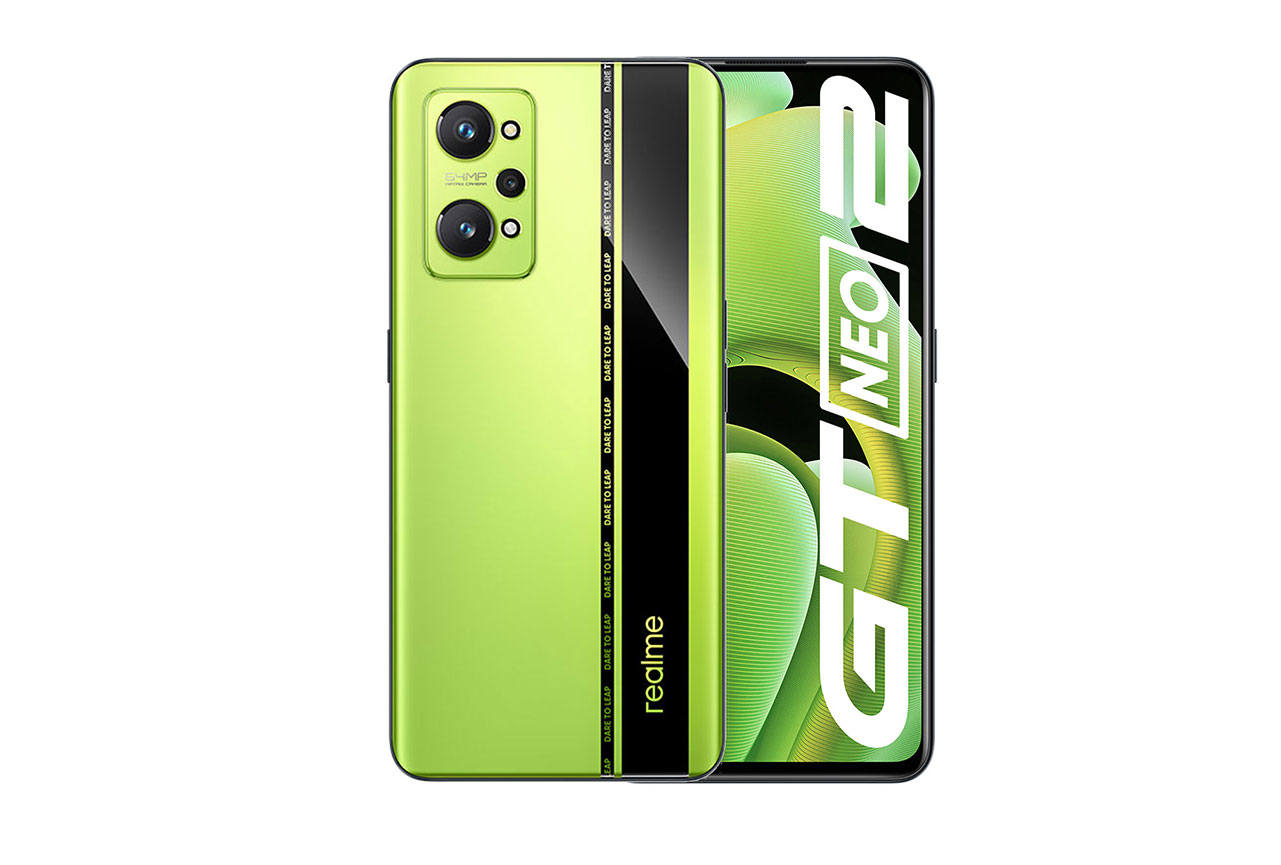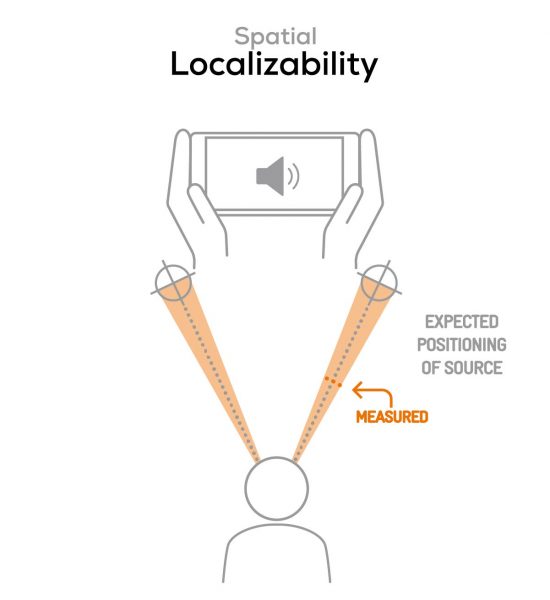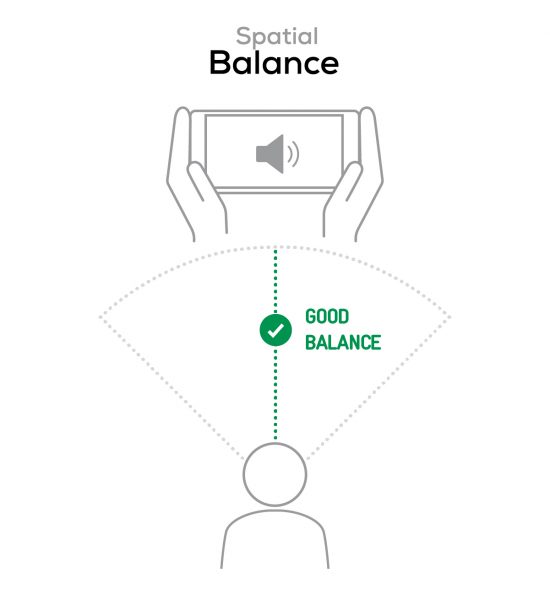Released in September 2021 by the Chinese smartphone manufacturer Realme, the GT Neo 2 5G belongs in our High-End ($400-$599) segment. The Realme GT 5G’s successor is equipped with a 6.62-inch AMOLED display with FHD+ resolution and 120Hz refresh rate, a Qualcomm Snapdragon 870 5G processor, and 65W “SuperDart Charge”.
On the audio side of things, the GT Neo 2 5G was developed in partnership with Dolby Atmos to deliver “superb sound quality for crisp, clear and immersive audio” — that’s for playback. As for the recording quality, Realme only discloses the presence of dual noise-cancellation microphones. We thus put the Realme GT Neo 2 5G through our rigorous DXOMARK Audio test suite to measure its performance both at recording sound using its built-in microphones, and at playing audio back through its one built-in speaker. In this review, we will break down how it fared in a variety of tests and several common use cases.
Audio specifications include:
- Two speakers for stereo playback (one top, front-firing, one bottom, side-firing)
- USB type-C output (no 3.5 mm headphone jack)
- Dolby Atmos
- Hi-Res Audio
About DXOMARK Audio tests: For scoring and analysis in our smartphone audio reviews, DXOMARK engineers perform a variety of objective tests and undertake more than 20 hours of perceptual evaluation under controlled lab conditions. This article highlights the most important results of our testing. Note that we evaluate both Playback and Recording using only the device’s built-in hardware and default apps. (For more details about our Playback protocol, click here; for more details about our Recording protocol, click here.)
Test summary
Scoring
Sub-scores and attributes included in the calculations of the global score.

Realme GT Neo 2 5G


 130th
130th 18th
18thPlayback
Pros
- Very good artifacts performance
- Decent maximum volume performance
Cons
- Midrange-focused tonal balance
- Dynamic performance is a bit poor
Recording
Cons
- Sensible to occlusions when recording
- Lack of clarity, and high-end extension
Although its overall Audio mark of 60 places the Realme GT Neo 2 5G in the lower third of our rankings for smartphone audio, alongside devices such as the Huawei Mate 30 Pro, it still scored three points higher than its predecessor, the Realme GT 5G.
Sub-scores explained
The DXOMARK Audio overall score of 60 for the Realme GT Neo 2 5G is derived from its Playback and Recording scores and their respective sub-scores. In this section, we’ll take a closer look at these audio quality sub-scores and explain what they mean for the user.
Playback

Timbre
Realme GT Neo 2 5G
55
89
Timbre tests measure how well a phone reproduces sound across the audible tonal range and takes into account bass, midrange, treble, tonal balance, and volume dependency.
Overall, the Realme GT Neo 2 5G’s playback sonority can be characterized as fairly aggressive and nasal, due to a midrange-focused frequency response and diverse resonances that worsen as the volume increases. Bass is lacking, both in-depth of frequency as in strength and presence. Treble is also recessed, and slightly resonant.
As for midrange, it lacks warmth and low-midrange body. And despite occasional high-midrange resonances, a little more presence in that region would have been beneficial for enhancing the sound clarity. In terms of use cases, movies and games fare best thanks to a more homogeneous tonal balance.
DXOMARK’s dynamics tests measure how well a device reproduces the energy level of a sound source, and how precisely it reproduces bass frequencies.
While the speakers deliver a fairly sharp attack at nominal volume — which manages to remain pretty accurate even at maximum volume —, the dynamic performance and punch in particular are weakened by the lack of low-end energy. Additionally, the lack of sustain in the lower frequencies renders the bass envelope inaccurate, and at soft volumes, attack is dulled out.
Compared to most devices, bass precision at maximum volume is not too bad. Here too, games fare best overall, thanks to sharper attack and more precise bass. Punch, however, is most impactful in movies.
The sub-attributes for perceptual spatial tests include localizability, balance, distance, and wideness.
The GT Neo 2’s speakers turn in average results in the spatial category, with satisfying and immersive stereo width, decent localizability overall, and correct balance between the left and right channels.


However, when the phone is held in portrait mode, localizability can become slightly blurry, and centered elements tend to be perceived slightly lower than they should. Additionally, distance rendering is inaccurate regardless of the use case, in that important elements such as voices can sound farther than they should. Finally, note that stereo doesn’t rotate accordingly when the device is used in inverted landscape mode. Once again, gaming gets the best deal, with considerably superior results in wideness, balance, and localizability.

Volume
Realme GT Neo 2 5G
71
91
Volume tests measure both the overall loudness a device is able to reproduce and how smoothly volume increases and decreases based on user input.
The Realme GT Neo 2 5G delivers satisfying loudness at maximum volume. For comparison, here are a few sound pressure levels (SPL) measured when playing our sample recordings of hip-hop and classical music at maximum volume:
| Hip-Hop | Classical | |
| Realme GT Neo 2 5G | 76.3 dBA | 70.6 dBA |
| Oppo Find X3 Neo | 76.5 dBA | 71.8 dBA |
| Oppo Reno6 Pro 5G (Snapdragon) | 73.9 dBA | 68.8 dBA |
On the other hand, the minimum volume steps could benefit from better tuning, as intelligibility is below average. Finally, the volume steps distribution is fairly consistent across all listening volumes:

Artifacts
Realme GT Neo 2 5G
91
113
Artifacts tests measure how much source audio is distorted when played back through a device’s speakers. Distortion can occur both because of sound processing in the device and because of the quality of the speakers.
Aside from the artifacts commonly triggered by most devices when playing back our synthetic signals, the Realme GT Neo 2 5G’s speakers offer a particularly clean sound at nominal volume. Maximum volume is also almost void of sonic artifacts, whether temporal or spectral, however, a little noise becomes perceivable. All in all, the phone is very skilled at keeping undesirable sounds to a minimum.
Recording

Timbre
Realme GT Neo 2 5G
61
91
The Neo2’s timbre quality in audio recordings is honorable overall, with a significantly better rendering than that of its predecessor, alas it still has its shortcomings
In life videos, the lack of high-end extension and clarity remains an issue, and a little more high mids wouldn’t be a luxury. The same can be said about selfie videos, in which the frequency response manifests a deficit of high mids and treble, resulting in a darker sonority. When recording meetings, the tonal balance is rather harmonious thanks to good midrange reproduction, however, high-end extension is still slightly limited. Memos recorded in urban surroundings exhibit hollow-sounding midrange, and canny voices. Finally, in loud environments, bass is well captured but the overall results sounds boomy and lacks clarity.

Dynamics
Realme GT Neo 2 5G
52
81
Meeting recordings and life videos earn the best sub-score in this category thanks to good signal-to-noise ratio. The sound envelope, on the other hand, is quite hazardous, regardless of the app or the use case. In selfie videos for example, the noise-canceling algorithm audibly cuts transients, which are also considerably affected when recording in loud environments, such as concerts, by excessive compression.

Spatial
Realme GT Neo 2 5G
44
78
In recorded audio, while localizability of the sound sources is correct, wideness is quite narrow. In selfie videos, localizability becomes blurry and wideness, nonexistent. And in life videos, distance tends to feel slightly unrealistic due to the dark sonority, which makes voices sound a bit farther than they should.

Volume
Realme GT Neo 2 5G
47
99
Here are our test results, measured in LUFS (Loudness Unit Full Scale). As a reference, we expect loudness levels to be above -24 LUFS for recorded content:
| Meeting | Life Video | Selfie Video | Memo | |
| Realme GT Neo 2 5G | -25.2 LUFS | -22.9 LUFS | -21.8 LUFS | -22.2 LUFS |
| Oppo Find X3 Neo | -19.3 LUFS | -17 LUFS | -16.4 LUFS | -15.7 LUFS |
| Oppo Reno6 Pro 5G (Snapdragon) | -21.6 LUFS | -16.6 LUFS | -15.4 LUFS | -17.1 LUFS |

Artifacts
Realme GT Neo 2 5G
69
97
In terms of temporal artifacts, while compression remains rather discreet in life videos, it can become quite pervasive when recording in loud environments. As for spectral artifacts, slight clipping can be noticed on shouting voices in life and selfie videos. You can check for artifacts yourself in this sample recording:
Finally, note that the microphones are highly sensitive to skin occlusion, especially when the bottom side of the device is in contact with the user’s hand. This generates enormous artifacts and almost unusable recordings.
The Realme GT Neo 2 5G does not do a very good job of faithfully preserving background sounds: They sound dark and veiled in life videos, whereas in selfie videos and in memos, the noise-canceling algorithm makes it sound quite unnatural. As a result, the phone’s recording background sub-score of 19 is among the lowest of all the phones we’ve tested to date, yet still four points higher than the Realme GT 5G.
Conclusion
The Realme GT Neo 2 5G audio performance showed some improvement over the GT 5G, which was released only a few months earlier and at a slightly higher price. While playback performance was similar to that of the Realme GT 5G, the GT Neo 2 5G showed a marked improvement in recording, particularly when used for meetings and life videos, all which helped boost the overall performance.




DXOMARK encourages its readers to share comments on the articles. To read or post comments, Disqus cookies are required. Change your Cookies Preferences and read more about our Comment Policy.